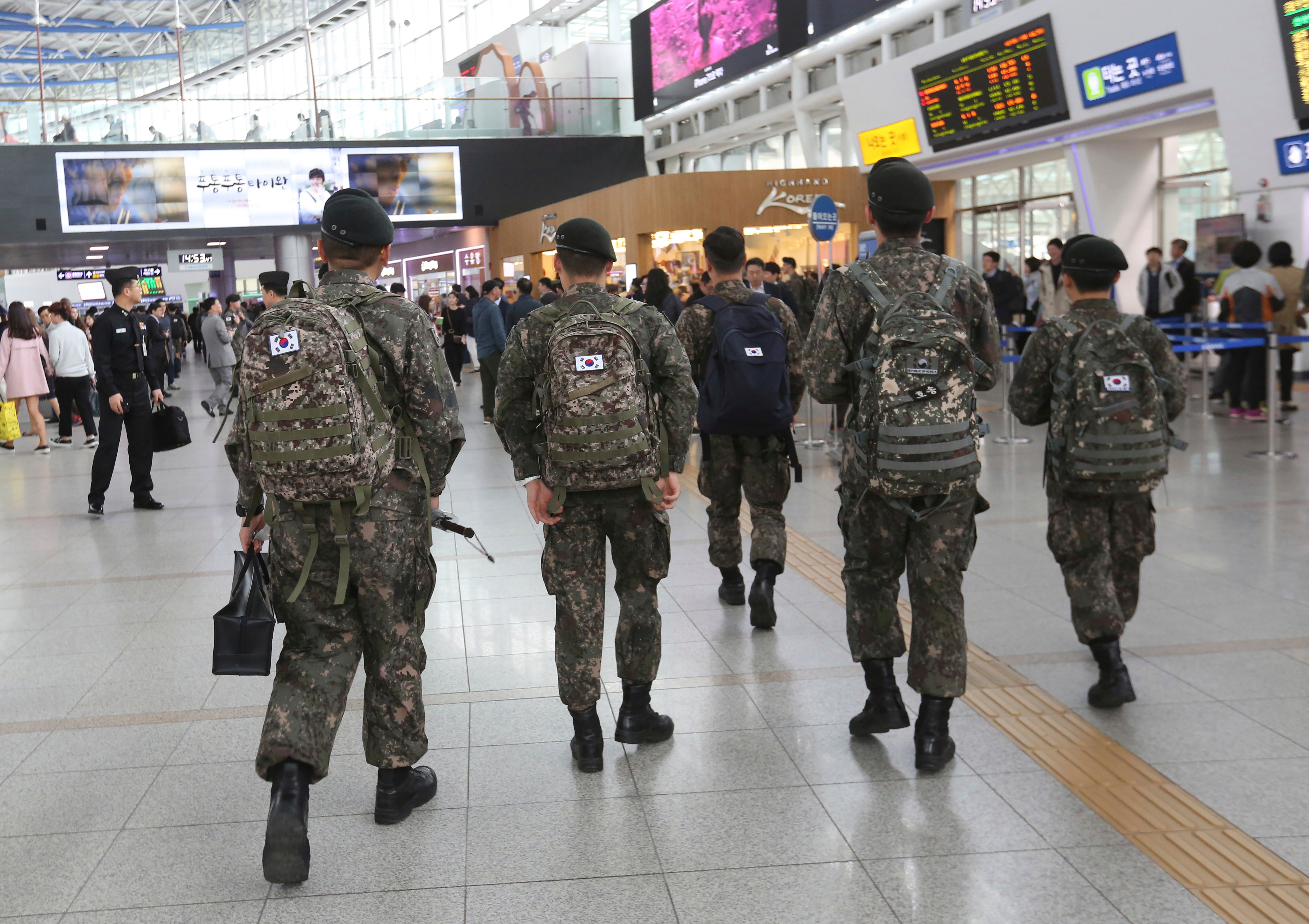In a first, South Korea’s top court reverses military convictions of two gay soldiers
Servicemen were charged by military prosecutors in 2017 for having sex during off-duty hours, outside military base, in 2016

Your support helps us to tell the story
From reproductive rights to climate change to Big Tech, The Independent is on the ground when the story is developing. Whether it's investigating the financials of Elon Musk's pro-Trump PAC or producing our latest documentary, 'The A Word', which shines a light on the American women fighting for reproductive rights, we know how important it is to parse out the facts from the messaging.
At such a critical moment in US history, we need reporters on the ground. Your donation allows us to keep sending journalists to speak to both sides of the story.
The Independent is trusted by Americans across the entire political spectrum. And unlike many other quality news outlets, we choose not to lock Americans out of our reporting and analysis with paywalls. We believe quality journalism should be available to everyone, paid for by those who can afford it.
Your support makes all the difference.In a landmark ruling, South Korea’s highest court has overturned a previous military court order that convicted two soldiers for a consensual same-sex relationship.
Citing their rights to sexual autonomy, human dignity and to pursue happiness, the Supreme Court on Thursday determined that the earlier 2019 judgement sentencing the soldiers to a suspended prison sentence was unconstitutional.
While same-sex relationships are not illegal for civilians in the conservative country, South Korea’s military rules prevent servicemen from partaking in homosexual activities, making it a criminal offence punishable with up to two years in prison.
In its order, the court said that the conviction by the military court did not take into account that the sexual relations of the defendants were consensual, thereby excessively restricting their right to sexual self-determination.
“Punishing these incidents could … infringe upon the right to equality, the dignity and value as human and the right to pursue happiness as guaranteed by the Constitution,” the Supreme Court said.
After a full panel deliberation of its 13 justices, chief justice Kim Myeong-su said that they do not believe that the provision should be applied to servicemen involved in a consensual relationship outside of military facilities during off-duty hours.
“The specific ideas of what constitutes as indecency has changed accordingly with the changes in time and society,” the court said.
“The view that sexual activity between people of the same sex is a source of sexual humiliation and disgust for objective regular people and goes against decent moral sense can hardly be accepted as a universal and proper moral standard for our times.”
The two men, holding the posts of an army lieutenant and sergeant in different units, were charged by military prosecutors in 2017 for having sex during off-duty hours at a residence outside the base in 2016.
Responding to the Supreme Court’s ruling, the ministry of defence said it would thoroughly review “the intent” of the judgement.
Thursday’s ruling was widely praised by human rights groups as it was the first time that the top court had ruled in favour of queer soldiers for violating the Military Criminal Act.
The Seoul-based Center for Military Human Rights group welcomed the decision, and said the order “will serve as a milestone in the long debate over this law”.
“This groundbreaking decision is an important triumph in the fight against discrimination faced by LGBTI people in South Korea,” said Amnesty International’s East Asia researcher Boram Jang.
“The criminalisation of consensual same-sex sexual acts in South Korea’s military has long been a shocking violation of human rights, but today’s ruling should pave the way for military personnel to freely live their lives without the threat of prosecution.”
Views about sexual minorities in South Korea have gradually improved in recent years, with a rise in the number of films and television shows that feature LGBT+ characters. However, anti-gay sentiments still run deep in the traditionally conservative country.
Same-sex marriages aren’t legal and there are no prominent openly queer politicians or business executives.
Last year, the death of Byun Hui-su, South Korea’s first known transgender soldier, triggered a debate over the rights of sexual minorities serving in the military. She was found dead at her home a year after being discharged for undergoing gender reassignment surgery.
Additional reporting by agencies
Join our commenting forum
Join thought-provoking conversations, follow other Independent readers and see their replies
Comments